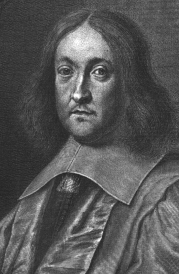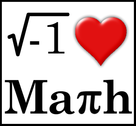Number Theory Unit
|
Number Theory is a branch of mathematics concerned with properties of the positive integers. Sometimes, it is called "higher arithmetic", and it is among the oldest and most natural of all mathematics pursuits.
Number Theory has always fascinated amateurs as well as professional mathematicians. In contrast to other branches of mathematics, many of the problems and theorems of number theory can be understood by layperson, although solutions to the problems and proofs of the theorems often require a sophisticated mathematical background. |
Pierre de Fermat is a French mathematician who is often called the founder of the modern theory of numbers.
|
Until the mid-2oth century, Number Theory was considered the purest branch of mathematics with no direct applications to the real world. The advent of digital computers and digital communications revealed that number theory could provide unexpected answers to real-world problems. At the same time, improvements in computer technology enabled number theorists to make remarkable advances in factoring large numbers, determining primes, testing conjectures, and solving numerical problems once considered out of reach.
Modern number theory is a broad subject that is classified into subheadings such as elementary number theory, algebraic number theory, analytic number theory, geometric number theory, and probabilistic number theory.
Modern number theory is a broad subject that is classified into subheadings such as elementary number theory, algebraic number theory, analytic number theory, geometric number theory, and probabilistic number theory.
Lecture Notes & Other Resources
|
|
|

